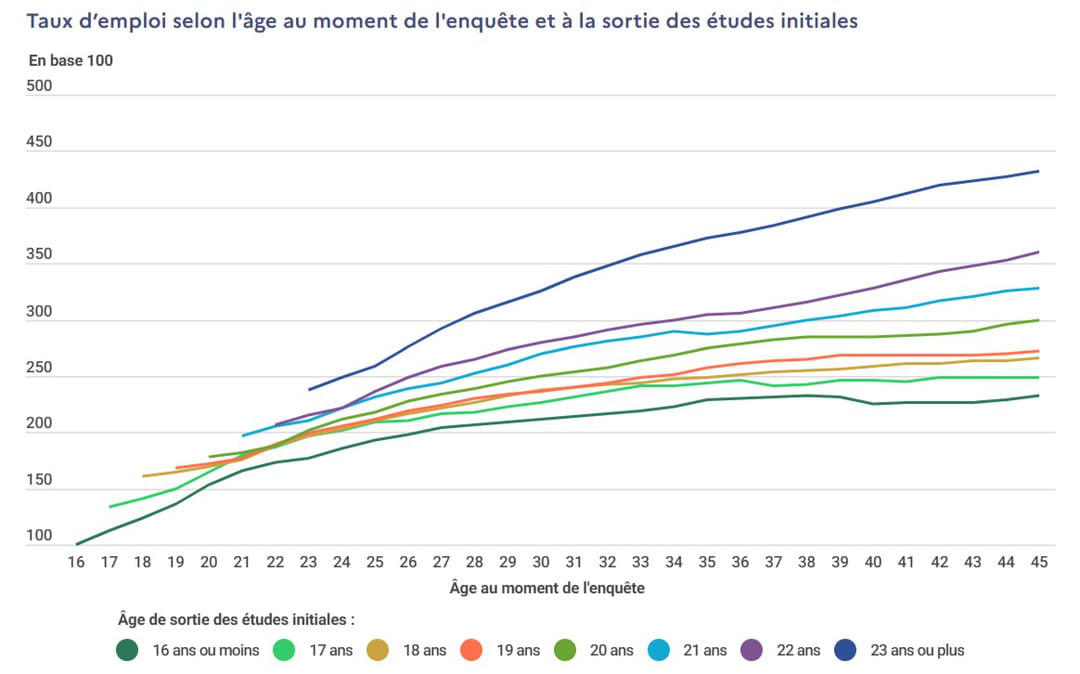A new study has assessed the correlation between duration of studies and professional integration. So what is the ideal age until which to study to aim for a good job?
With the generations, studies have become longer and longer. Today, a little less than a quarter of the population aged 25 or over has a diploma higher than at least bac +2, according to INSEE data in 2022. Previously, the ends of Early studies were much more common. Do the new requirements then have an impact on the job market?
The Directorate for the Animation of Research, Studies and Statistics of the Ministry of Labor has published a study on March 28 to take stock of the evolution of the age of leaving studies in correlation with its effects on integration into the world of work. She first notes that people born in 1935, i.e. before the war, left the school system early, they often worked before the age of 17. 40 years later, in 1975, the average school leaving age rose to 21. The level has been roughly the same since.
This is explained in particular by the extension of the obligation to go to school until the age of 16 in 1959 and by the development of professional and shorter training from the third year onwards. The majority of generations born from the end of the 1970s complete their baccalaureate or equivalent diploma at least (70%).
Which of these two models then bring the most advantages in terms of professional integration? According to the study, “an early exit from the school system could bring a short-term advantage on integration at a given age, compared to later leavers, due to longer seniority in the labor market, but this is not the case, at all ages, people who left the school system early have a lower employment rate than those who left school early. people who left later.

Thus, more than half of 17-19 year olds who stopped studying find themselves unemployed or inactive for the following two years, while 75% of people who finished their studies at over 20 found a job in the first two years. following their studies, 40% of which are on permanent contracts.
Second criterion which must also be taken into account: salary. A real salary disparity is observable depending on the duration of studies. Employees who are now between 35 and 45 years old are more managers than those who have less education, a status which offers a higher salary. Between 35 and 45 years old, 47.6% of people who completed their initial studies at least 23 years old are senior managers. Conversely, only 5.7% of those who stopped at the age of majority have this type of position around their forties.
Another interesting observation: for those who finished their studies at 22, the share of executives is half as high as for those who went to 23 or more. Studies up to at least 23 years therefore appear, according to the study, to be ideal for achieving such functions and potentially higher income.
